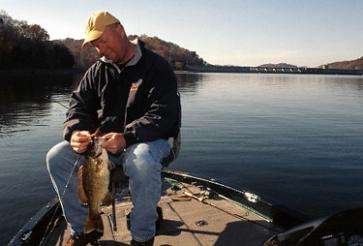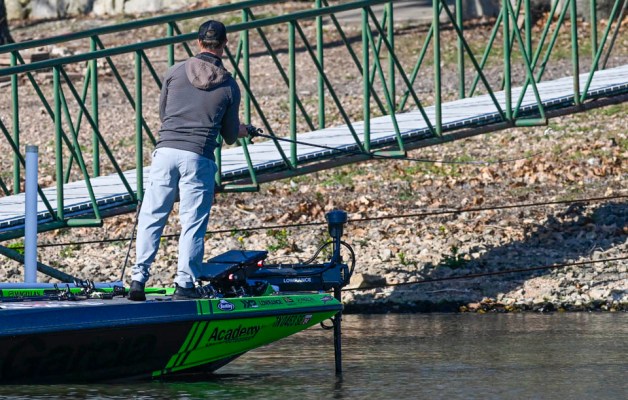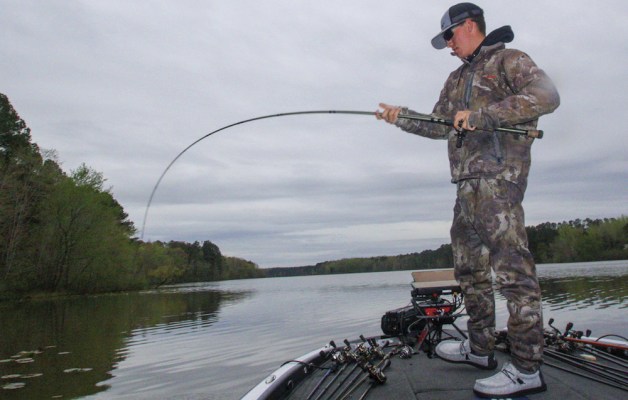
It’s that time of year! Bass fishermen all around the country are thinking about catching big bass.
Whether it’s three-pounders from a small stream or river or six-pounders from a major reservoir, we all want to catch the biggest bass we can. It’s in our nature.
I’ve been getting a lot of e-mails lately from guys who are probably pretty good anglers asking how they can catch bigger fish from their favorite waters. They tell me that they catch a lot of 14- and 15-inch smallies from the streams they fish or that they’re getting lots of three- and four-pounders from their local lake, but nothing much bigger.
The first thing I wonder — and the first thing they need to focus on — is whether there are bigger fish there to be caught. After all, if a two-pounder is the biggest fish in the stream, you’re going to have a hard time catching a five-pounder.
And that’s the biggest mistake fishermen make when they set out to catch that fish of a lifetime. They fish waters that just don’t have the quality they’re looking for, and they expect these giants to magically appear out of nowhere. It’s kind of like going to McDonalds and expecting to get a really great pizza. It’s just not there.
So the first step in your trophy chase is to get really serious about finding the right place to fish. Check with area biologists, local newspapers and magazines and any experts you can trust. Find out what body of water is producing big fish right now — not five years ago — but right now.
The second thing you need to do is spend as much time on the water as you can. Making deadly accurate casts with the latest and greatest lures or being able to read a depthfinder like you read this column is a big help, but there’s just no substitute for spending time on the water and giving yourself as much opportunity as possible.
Finally, remember that trophy fishing is a long, often tiring and sometimes very solitary business. My old friend, the late Billy Westmorland, used to spend days and days on his favorite Dale Hollow lunker spots looking for just one strike. He wasn’t hoping to load the boat with five-pounders. He wanted one bite from a giant. That’s why he was one of the very best to ever wet a line.
Spend the time on the water and pay your dues.
Oh, and carry a very big net!
Until next time, if you have any questions or comments, I’d love to hear from you. Please e-mail me atStephen@thesmallmouthguru.com.





